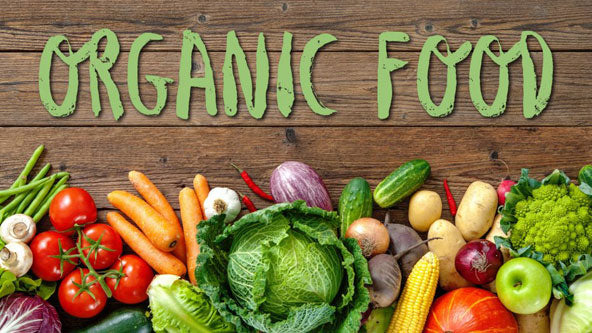
The Essence of Organic Vegetables?
Share
Understanding Organic Farming Organic farming is a holistic approach aimed at cultivating produce in harmony with nature. This method eschews the use of synthetic fertilizers and pesticides, instead focusing on natural processes and materials to nurture crop growth. Crop rotation, green manure, and compost are pivotal to this system, fostering soil health and biodiversity.
The No-Chemical Policy At the heart of organic farming is the strict avoidance of all synthetic chemicals. This commitment ensures that the vegetables are not only safer for consumption but also promote a healthier environment.
Crop Rotation and Biodiversity Organic farming heavily relies on crop rotation and maintaining biodiversity. This practice not only prevents soil depletion but also reduces pest outbreaks, diminishing the need for chemical interventions.
Health Benefits of Organic Vegetables Organic vegetables are often lauded for their health benefits. They are believed to be more nutrient-rich than their non-organic counterparts, primarily due to the soil-conserving techniques employed in organic farming.
Nutrient Richness Studies suggest that organic produce may contain higher levels of certain nutrients, including antioxidants. These compounds are essential for combating oxidative stress and inflammation in the body.
Reduced Exposure to Pesticides One of the most significant health benefits of organic vegetables is the reduced exposure to harmful pesticides. Consuming organic produce can minimize your intake of these chemicals, which have been linked to a variety of health issues.
Environmental Impact Organic farming practices have a gentler footprint on the environment. By avoiding synthetic chemicals, these methods help preserve water quality, reduce soil erosion, and encourage wildlife diversity.
Soil Conservation Healthy soil is the foundation of organic farming. Techniques such as crop rotation and the use of organic fertilizers help maintain and improve soil health over time.
Water Conservation and Quality Organic farming methods contribute to water conservation and improve water quality by preventing polluted runoff from contaminating water sources.
The Economic Perspective While organic vegetables often come with a higher price tag, their benefits extend beyond personal health to support local economies and sustainable farming practices.
Price Comparison It's true that organic vegetables can be more expensive than conventional ones. However, the price reflects the more labor-intensive methods of organic farming and the avoidance of harmful chemicals.
Supporting Local Economies Purchasing organic produce can also support local farmers who employ sustainable practices, fostering a closer connection between consumers and their food sources.
How to Identify Organic Vegetables Identifying genuine organic produce involves looking for specific certifications and understanding labeling practices.
Certification and Labeling Organic vegetables are usually accompanied by certification labels that verify their organic status. These labels are regulated by national and international bodies to ensure standards are met.
Where to Buy Organic Vegetables Organic produce can be found in various places, from local farmers' markets to specialized grocery stores. Knowing where to look can make all the difference in accessing fresh, organic vegetables.
Common Myths about Organic Vegetables Misconceptions about organic produce abound, but it's important to separate fact from fiction to make informed dietary choices.
Myth vs. Reality One common myth is that organic vegetables are always more nutritious. While they can contain higher levels of certain nutrients, the nutritional content can vary widely.
The Importance of Being Informed Making informed choices about organic produce means understanding both its benefits and limitations. By doing so, consumers can contribute to a more sustainable and healthy food system.
Conclusion Organic vegetables offer a range of benefits, from improved health and nutrition to environmental sustainability. While they may come at a premium, the advantages of choosing organic extend beyond the dinner table to support a more sustainable and equitable food system.
FAQs
-
Are organic vegetables really pesticide-free? Organic vegetables are not necessarily pesticide-free, but they are grown with only natural pesticides, as opposed to synthetic ones used in conventional farming.
-
Can eating organic vegetables improve my health? Eating organic vegetables can reduce your exposure to harmful pesticides and may provide higher levels of certain nutrients, potentially contributing to improved health.
-
Why are organic vegetables more expensive? Organic vegetables are more expensive due to the more labor-intensive agricultural practices required and the higher cost of organic fertilizers and pest control methods.
-
How can I be sure I'm buying organic vegetables? Look for official organic certification labels on the produce, which indicate that the vegetables meet strict organic farming standards.
-
Can I grow my own organic vegetables at home? Yes, you can grow your own organic vegetables at home by using natural fertilizers and pest control methods and following organic gardening practices.